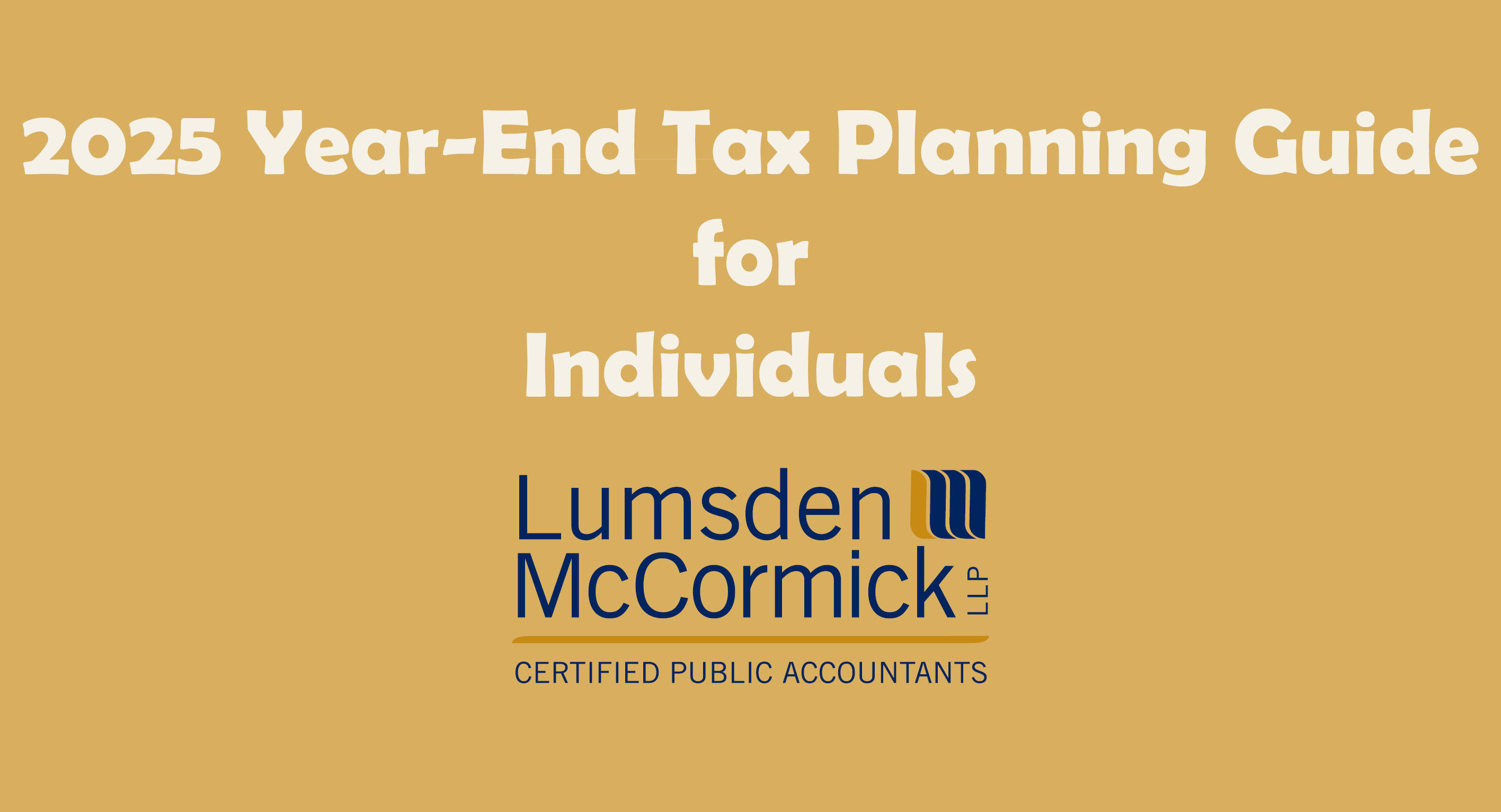Tax Articles
How USPS Postmark Updates May Affect Mail Deadlines in 2026
Posted by Amanda Wojtkowski on January 15, 2026
Under the "Delivering for America" plan, the USPS has clarified that postmarks added to mail do not reflect a mailing date, they reflect a processing date. This has implications for the way time-sensitive mail, including tax return and tax payments, is received by federal agencies.
Changes Coming to Information Reporting for the 2026 Tax Year
Posted by John George on December 15, 2025
Starting in 2026, the One Big Beautiful Bill Act (OBBBA) introduces major changes to employer reporting requirements, including new W-2 codes for qualified tips and overtime income and contributions to Trump accounts. The law also raises the 1099 reporting threshold from $600 to $2,000, easing compliance for businesses. Employers should prepare now for updated forms and processes to ensure accurate reporting and employee eligibility for deductions.
New Tax Law Expands Business Interest Expense Deductions
Posted by Michē Needham on December 08, 2025
The One Big Beautiful Bill Act (OBBBA) significantly expands business interest expense deductions starting in 2025. It allows a more generous calculation of adjusted taxable income (ATI) by excluding depreciation, amortization, and depletion, and broadens floor plan financing to include trailers and campers. These changes mean larger deductions for many businesses, though complex rules and exceptions still apply.
2025 Year-End Tax Planning Guide for Individuals
Posted by Cheryl A. Jankowski on December 08, 2025
As year-end approaches, individuals must prepare to review their 2025 tax situation. Our annual year-end guide highlights key opportunities and important updates that can lower tax liability and strengthen long-term financial planning.
Maximize Your Gift Tax Annual Exclusion
Posted by Isabella Newman on December 04, 2025
The gift tax annual exclusion lets you give up to $19,000 per recipient in 2025 (and 2026) tax-free, helping reduce your estate tax liability. Married couples can double this amount through split gifts, but remember the deadline is December 31 and certain gifts require IRS reporting. For larger gifts, you can use your lifetime exemption, and some payments—like tuition or medical expenses made directly—are always tax-free.
2025 Year-End Tax Planning Guide for Businesses - Public Companies
Posted by Brian Kern on December 01, 2025
As public companies prepare for year-end, a proactive and integrated tax strategy is essential for optimizing cash flow, reducing risk, and ensuring transparent financial communication with stakeholders. This guide highlights key areas that corporate tax and finance leaders should evaluate before the close of the fiscal year.
Pair a Living Trust with a Pour-Over Will
Posted by D’Marie Kleeman on November 26, 2025
Pairing a living trust with a pour-over will create a comprehensive estate plan that ensures all assets are managed and distributed according to your wishes. The living trust streamlines transfers and avoids probate for most assets, while the pour-over will act as a safety net for anything left out, maintaining consistency and privacy. Together, they offer flexibility, reduce stress for loved ones, and help prevent costly delays.
The Tax Factor: How It Can Make or Break Your M&A Deal
Posted by Cheryl A. Jankowski on November 24, 2025
Taxes play a critical role in the success of mergers and acquisitions, influencing both deal structure and financial outcomes. Whether a transaction is structured as an asset sale or a stock sale can significantly impact tax liabilities for buyers and sellers. Understanding these implications early helps avoid surprises and ensures a more strategic, tax-efficient deal.
Plan Ahead for End-of-Life Arrangements
Posted by Amanda Wojtkowski on November 20, 2025
Planning your funeral and memorial arrangements in advance can ease emotional and financial stress for your loved ones. By documenting your preferences and considering payment options—such as prepaid plans or a payable-on-death account—you ensure your wishes are honored and incorporated into your estate plan. Thoughtful preparation today provides clarity and peace of mind for your family.
New Tax Break for Manufacturers: 100% First-Year Depreciation on Qualified Production Property
Posted by Kristin Re’ on November 17, 2025
The One Big Beautiful Bill Act introduces a 100% first-year depreciation deduction for nonresidential real estate classified as Qualified Production Property (QPP), offering significant tax savings for manufacturers. To qualify, properties must meet strict usage and timing requirements, and businesses should be aware of limitations such as nonqualified areas, leased buildings, and potential recapture rules. Careful planning and IRS guidance will be essential to maximize this benefit.











